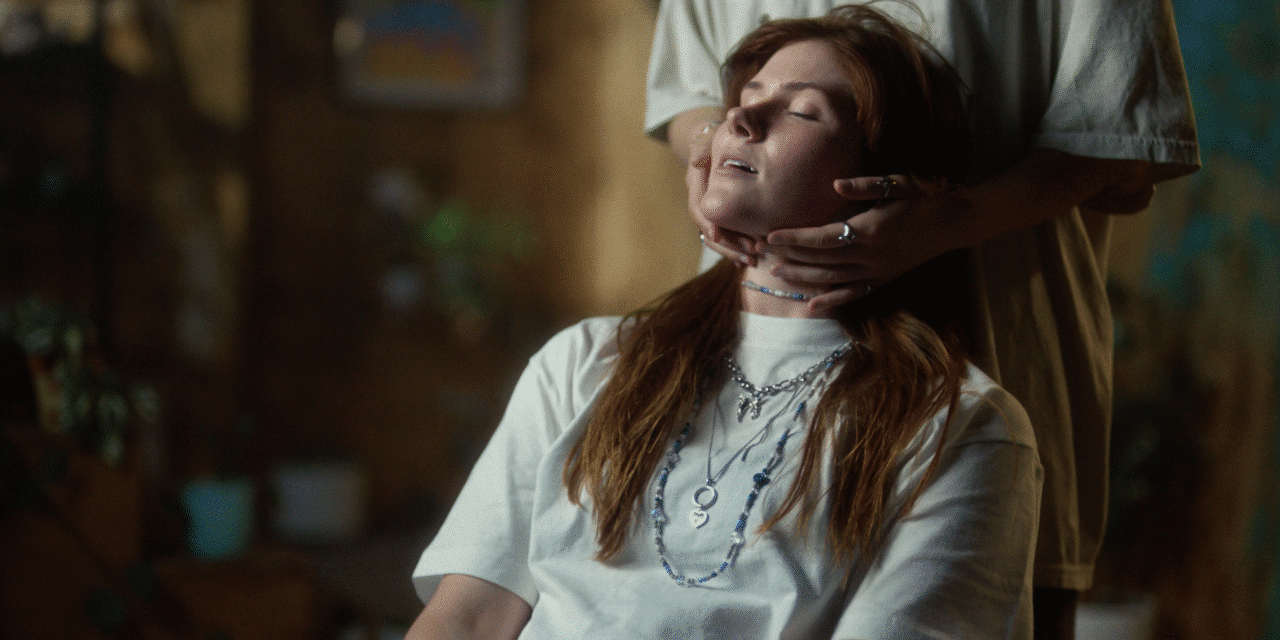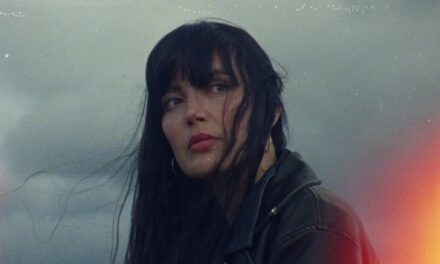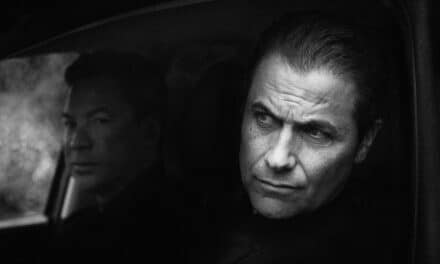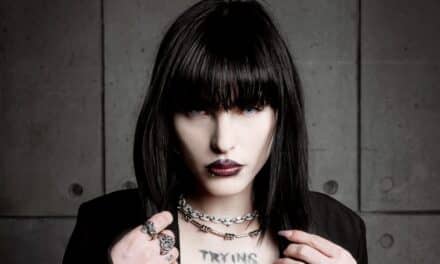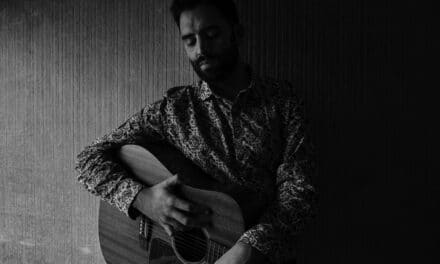Paxton Smith is no stranger to turning moments of chaos into something unforgettable. The world first met her as the viral valedictorian who used her 2021 graduation speech to speak out on abortion rights—a bold act that racked up 80 million views and nods from icons like Jennifer Aniston and Hillary Clinton. Since then, Smith has become a prominent voice in the women’s rights movement, appearing on CNN, MSNBC, Teen Vogue, and beyond.
But in 2025, Smith shifted gears and added a new title to her résumé: musician. Her debut single Belong Here peeled back the curtain on her own mental health struggles, showing that behind the activism was someone searching for belonging. Now, with her forthcoming EP But I Love It, Smith is fully stepping into her coming-of-age era—and it’s not without mess, humor, and heartache.
Her latest single, STOP ! (out September 19), is a love-hate letter to the on-again-off-again situationship cycle. The track spirals with a playful, cyclical melody that mirrors the maddening back-and-forth of knowing you should quit, but never quite managing to. “It’s for everyone who knows they should stop, but just keep coming back,” Smith explains.
True to her spirit, STOP ! doesn’t wallow—it bounces. The single turns frustration into something you can dance to, pairing sharp storytelling with a wink of self-awareness. That energy carries over into the music video, directed by Dino Maglaris (Dua Lipa, Lil Nas X). What starts as a familiar narrative twist-flips halfway through when Smith’s main love interest reveals their “face”: two oversized googly eyes and a crooked smile. It’s absurd, it’s funny, and it’s pure Paxton—never too serious, even when the subject matter is.
Produced with mixing engineer Matt Wolach (Kesha, 070 Shake, Peter McPoland), STOP ! cements Smith’s leap from activist to pop provocateur. It’s proof that she can channel the same conviction that once shook a graduation stage into music that sticks in your head long after the track ends.
With STOP !, Paxton Smith shows us that sometimes the best way to process heartbreak is to laugh, dance, and keep hitting play—even if you know you should stop.
You first came into the public eye for your viral valedictorian speech on abortion rights—how has that moment shaped the way you approach your music and storytelling today?
It’s a great question, and one I don’t get often. When I was an activist, I felt a lot of pressure to be the perfect version of an 18-year-old girl from the South, really respectable, no incriminating evidence that I was anything less. People in power often try to silence minority communities by pointing out flaws like anything “sinful,” immature, or negative to invalidate them. So I felt like I had to be flawless: academically excellent, well-spoken, perfect grammar, factually and politically correct, no party pics, no alcohol. That meant hiding parts of myself from the public.
But with music, I can’t do that if I want to make something meaningful. Good music, to me, is the opposite. It’s about leaning into the ugly parts, the insecurities, the contradictions. It’s a total 180 from activism. And honestly, it’s freeing. I don’t feel that same anxiety about how I’m perceived. With music, I get to be completely and totally myself—every version—and that’s something I can finally celebrate. It feels great.
“STOP !” is all about the push-and-pull of an on-and-off again relationship. What drew you to turn that kind of messy emotional cycle into something playful and bouncy?
“Stop !” is actually more about an on-and-off situationship than a relationship, if you could even call it that. What I had with this person was fun, playful, and bouncy. There was never any heartbreak, because we never got that far. It was all tension and flirting, knowing we shouldn’t but kind of wanting to, always going back and forth. But in the end, knowing we should stop. That fun flirty back and forth mixed with mild amounts of exhaustion was really what I aimed to capture.
The music video takes a surreal twist when the love interest suddenly has googly eyes and a crooked smile. What inspired that choice, and what does it say about your approach to humor in serious situations?
To be honest, it’s kind of ironic given my history in activism, but in my personal life, I’m a pretty chronically unserious person. I wanted to capture a flippant level of goofiness. My artistry is just me expressing myself through sound and images.
The googly eyes are meant to be fun and silly, but they also represent a realization I had, like, I keep going back and forth with this person, but what’s actually here? If it were real, it wouldn’t be so on-and-off. So I wanted the love interest to feel kind of inhuman—almost like something I made up in my head. That’s where the googly eyes came from. They’re symbolic, but also I just get *laughs* get a kick out of ‘em.
Your debut single Belong Here was very much about mental health behind activism. How does STOP ! expand or shift the narrative of your debut EP But I Love It?
My debut EP “But I Love It” is all about my coming of age—and mine has been shaped by contradiction and cyclical, looping thoughts that don’t always make sense. Like, when I was 18, I felt like I knew everything. Now I’m 22, and I feel like I know almost nothing. That’s what the EP is really about: getting lost.
Belong Here kickstarts my coming of age, because it’s based off of what happened right after I graduated high school. “Stop !” is just another aspect of my coming of age. It was the first time I ever experienced a situationship like that. It was confusing, because I knew I should stop, and yet I kept coming back. It’s just another example of those weird, looping, contradictory things that have defined this phase of my life.
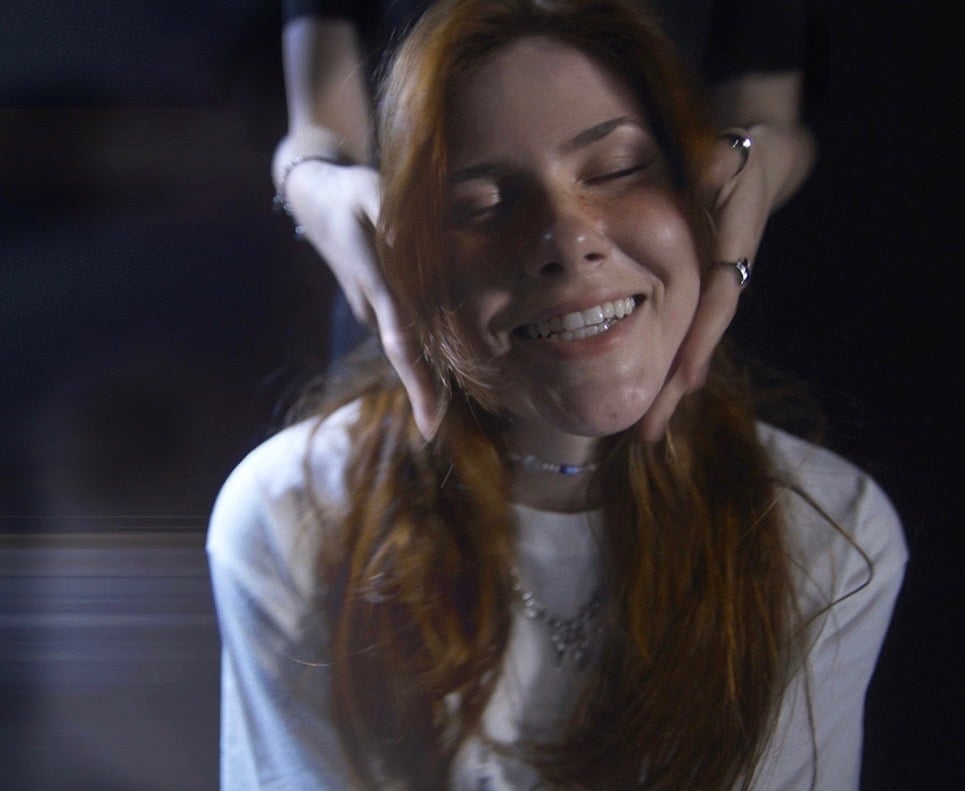
You’ve collaborated with Matt Wolach, who has mixed for artists like Kesha and 070 Shake. How did working with someone with that kind of pop pedigree influence the sound of this track?
Oh Matt’s awesome. He’s been one of my favorite people to work with so far. I think Matt just takes the music I’ve made and helps bring it to a really high-quality level, something that can actually compete with big artists. He’s great at what he does. I remember the first time we worked on a song, I was shocked by the quality and speed he came back with, even on the first pass. It’s been great working with him, and I hope to again after this EP—but we’ll see.
Activism and music are often treated as two separate lanes. Do you feel like those worlds naturally blend in your life, or do you see music as a kind of escape from your role as a public activist?
I definitely see my music as an escape from activism. Becoming an activist wasn’t something I chose. It happened because I was genuinely afraid of what was going on in the country regarding my right to control my own body. That fear resonated with people, and suddenly I had a microphone in my hand. I couldn’t just put it down. I had to use the opportunity to speak up, because not many people get that chance.
But it wasn’t something that brought me joy. Talking about abortion as much as I did became mentally draining, especially as those rights kept getting worse. A lot of people have suggested I write more activist-oriented songs, but I can’t treat those topics like creative content just because they get attention. Those issues weigh on me deeply and make me feel anxious—so I don’t want to spend my creative time writing about things that make me feel that way.
I know some people want to hear that kind of music from me, and I’m sorry to disappoint, but my music is for me, and that’s just not something I’m willing to sit in and write about right now.
The song is lighthearted but also brutally honest about not being able to let go. Do you think listeners will see themselves more in the comedy or in the heartbreak of STOP !?
Honestly, I think people might see themselves more in the lighthearted aspect. I was never heartbroken over the situationship I wrote the song about—it was just a fun experience. Flirting with this person, the on-and-off tension, the push and pull. It was exciting, even though I knew it had to stop. It was never going anywhere, and I don’t think either of us wanted it to.
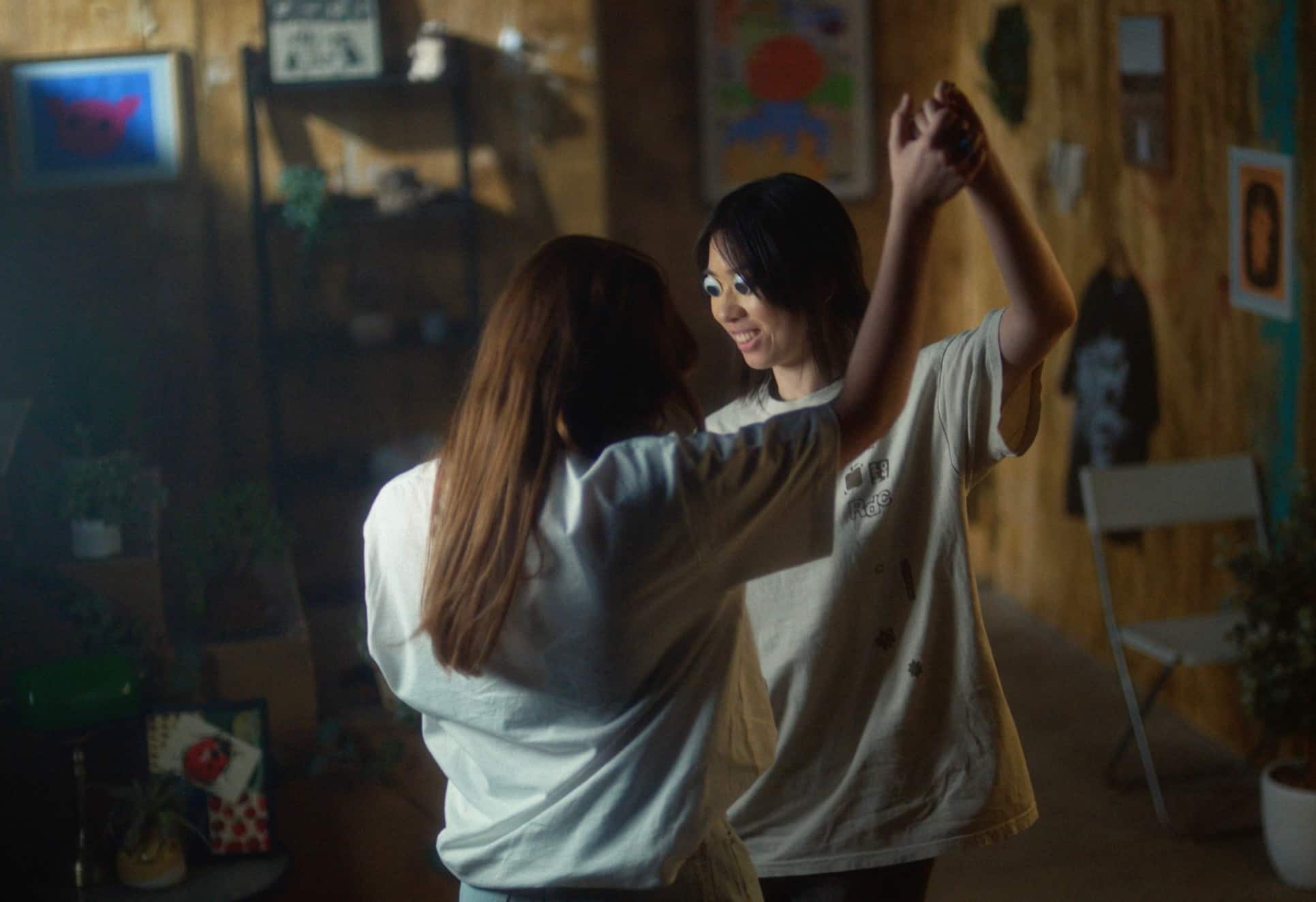
Your voice as an activist has reached CNN, MSNBC, and Teen Vogue. How does sharing your story in a three-minute pop song feel different from speaking on those platforms?
This really just comes back to being completely and totally myself. As an activist, I felt like I had to be perfect, speaking my truth in a way that was more palatable to a broader audience, especially those who disagreed with me. I didn’t want my private life to be used as a discredit to my argument that I deserve the right to bodily autonomy.
But my music? It’s full of contradictions and F-bombs and partying and sex. It’s all the unfiltered thoughts and emotions I deliberately kept hidden when I was an activist.
When I was on CNN or MSNBC, I’d rehearse a million times. I’d only get one shot to talk about a hugely controversial issue in front of millions. There’s no room for error.
But music isn’t like that for me. I write what comes to me, even if it’s messy or imperfect. I’m not trying to inform or convince anyone. I’m just here to express myself—and however that comes out, that’s what it is.
The EP is called But I Love It. What’s something in your own life—outside of music—that you probably shouldn’t love, but you do anyway?
I honestly can’t say there’s anything I love that I shouldn’t. But I Love It, my EP, is about coming of age, and what I mean in the title is that getting older is challenging. You’re on your own for the first time—no one’s holding your hand, no one’s stepping in during arguments, and you don’t have built-in friends from school anymore. It can be painful and confusing.
But on the other side of that, it’s like—yeah, it’s hard, but this is the first time I’ve truly been on my own. I get to choose my own friends, make my own decisions. Even when it’s uncomfortable, I still love it.
When people hear STOP ! for the first time, what’s the one feeling or image you hope sticks with them after the song ends?
I’m not really sure I have a clear answer to that, to be totally transparent. I usually write music for myself, to get my own feelings out, and I don’t usually stop to think about what I want other people to take from it. I’m not sure there’s a specific lesson, image, or feeling I want to stick.
I just hope people enjoy the sound design and composition. For me, when I listen to music, the most powerful part is how different tones and textures tickle different parts of my brain. That’s what sticks with me, and I always produce in a way that allows my sound design to shine. I know it might be an underwhelming answer, but that’s the part of music that hits me the hardest.

